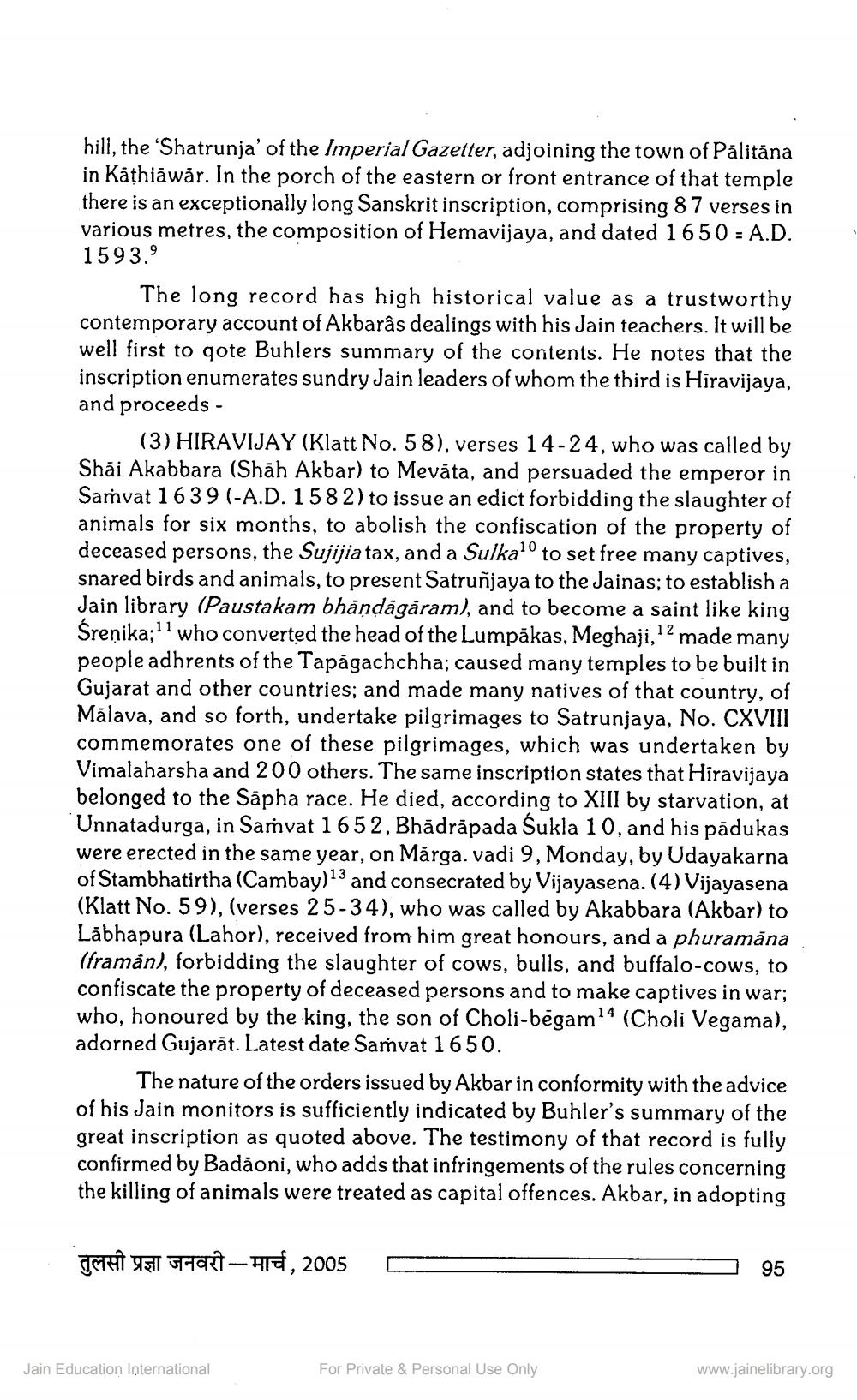________________
hill, the 'Shatrunja' of the Imperial Gazetter, adjoining the town of Palitāna in Käthiāwār. In the porch of the eastern or front entrance of that temple there is an exceptionally long Sanskrit inscription, comprising 8 7 verses in various metres, the composition of Hemavijaya, and dated 1650 - A.D. 1593.9
The long record has high historical value as a trustworthy contemporary account of Akbarâs dealings with his Jain teachers. It will be well first to qote Buhlers summary of the contents. He notes that the inscription enumerates sundry Jain leaders of whom the third is Hiravijaya, and proceeds -
(3) HIRAVIJAY (Klatt No. 58), verses 14-24, who was called by Shāi Akabbara (Shāh Akbar) to Mevāta, and persuaded the emperor in Samvat 1639 (-A.D. 1582) to issue an edict forbidding the slaughter of animals for six months, to abolish the confiscation of the property of deceased persons, the Sujijia tax, and a Sulkało to set free many captives, snared birds and animals, to present Satruñjaya to the Jainas; to establish a Jain library (Paustakam bhāņdāgåram), and to become a saint like king Śreņika;11 who converted the head of the Lumpākas, Meghaji,12 made many people adhrents of the Tapāgachchha; caused many temples to be built in Gujarat and other countries; and made many natives of that country, of Málava, and so forth, undertake pilgrimages to Satrunjaya, No. CXVIII commemorates one of these pilgrimages, which was undertaken by Vimalaharsha and 200 others. The same inscription states that Hiravijaya belonged to the Sapha race. He died, according to XIII by starvation, at Unnatadurga, in Saṁvat 1652, Bhădrāpada Sukla 10, and his pādukas were erected in the same year, on Mārga. vadi 9, Monday, by Udayakarna of Stambhatirtha (Cambay)13 and consecrated by Vijayasena. (4) Vijayasena (Klatt No. 59), (verses 25-34), who was called by Akabbara (Akbar) to Lābhapura (Lahor), received from him great honours, and a phuramāna (framån), forbidding the slaughter of cows, bulls, and buffalo-cows, to confiscate the property of deceased persons and to make captives in war; who, honoured by the king, the son of Choli-bēgam4 (Choli Vegama), adorned Gujarāt. Latest date Saṁvat 1650.
The nature of the orders issued by Akbar in conformity with the advice of his Jain monitors is sufficiently indicated by Buhler's summary of the great inscription as quoted above. The testimony of that record is fully confirmed by Badãoni, who adds that infringements of the rules concerning the killing of animals were treated as capital offences. Akbar, in adopting
THE YEART ---HTE, 2005
C
=
95
Jain Education International
For Private & Personal Use Only
www.jainelibrary.org




